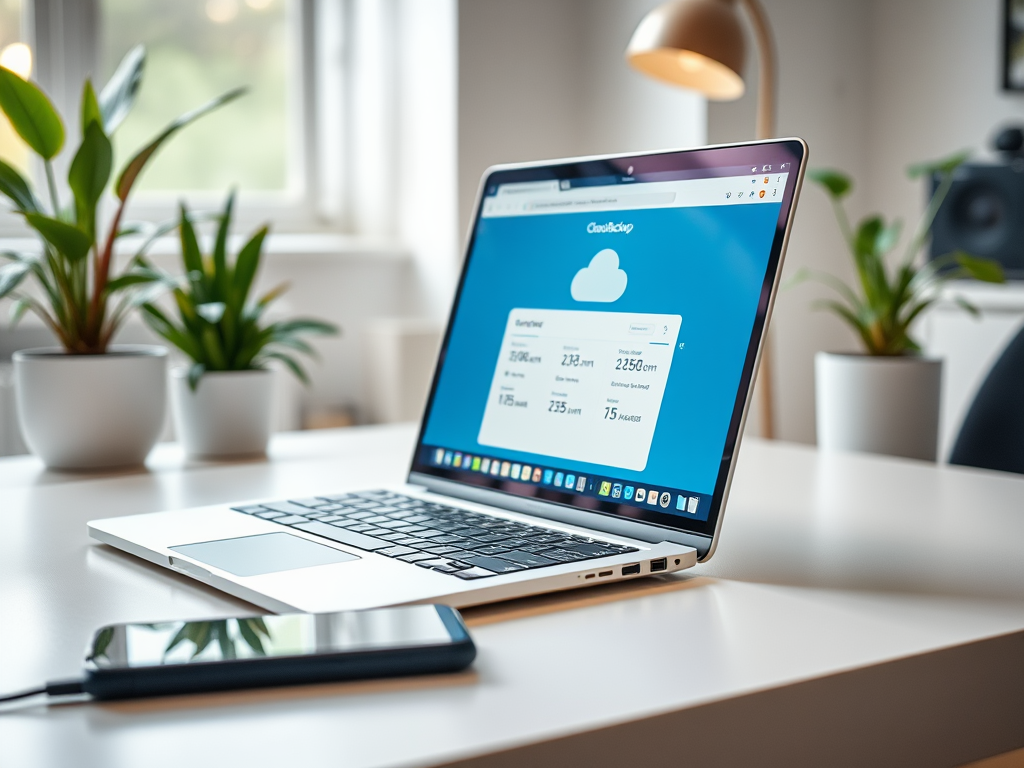In our increasingly digital world, smartphones have become an integral part of our daily lives. They store everything from our most private conversations to the photos that capture our treasured memories. Yet, many people take these devices for granted, rarely considering the possibility of sudden data loss. Imagine waking up one morning to find that all your contacts, cherished photos, and vital documents are suddenly gone. The reality is that data loss can occur at any moment, whether through theft, hardware failure, or even human error. This underscores the critical importance of regularly backing up your phone data before such a loss occurs.
Understanding the Risks of Not Backing Up

Every smartphone user faces countless dangers that could lead to data loss. Unfortunately, too many overlook these risks until it’s too late. One significant challenge individuals encounter is the unawareness of the vulnerable state of their data. The absence of a backup can plunge users into a chaotic scenario where potentially irreplaceable information vanishes in an instant. Moreover, the unpredictability of technology continues to escalate with newer models making earlier technologies obsolete which adds to the danger. This lack of foresight can have severe consequences in both personal and professional domains.
Common Causes of Data Loss

Data loss can transpire due to several factors, highlighting the urgent need for regular backups. Understanding these common causes can empower users to take proactive measures. Below are some frequent culprits behind lost data:
- Physical Damage: Accidental drops or liquid spills can compromise hardware and render data inaccessible.
- Device Theft: Smartphones are popular targets for thieves, resulting in immediate and total loss of stored data.
- Software Malfunctions: Updates gone wrong or unexpected app crashes can corrupt essential files.
- Accidental Deletion: A simple mistap could lead to the permanent loss of treasured files.
Benefits of Regularly Backing Up Your Phone Data
While setting up a backup system may seem overwhelming, the advantages far outweigh the effort involved. Regular backups serve as a safety net, ensuring you can recover your data with minimal hassle. One major benefit is the ease of data recovery whenever unexpected loss occurs. Additionally, having an updated backup can save precious time when restoring your device. However, the benefits extend beyond just recovery, as they also enhance your overall mobile experience.
Selecting an effective backup method is paramount for safeguarding your data. The ideal solution varies depending on individual preferences and needs. Here are some popular options:
- Cloud Storage: Services like Google Drive and iCloud offer accessibility and convenience at your fingertips.
- Local Backup Solutions: Copying files to a computer provides you with physical storage of your smart information.
- Third-Party Apps: Some applications are designed specifically for data backup, offering additional features that can enhance your experience.
Best Practices for Backing Up Your Phone Data
Establishing a routine for backing up your data is essential for personal data security. Here are a few best practices to help you maintain a consistent backup schedule:
- Schedule Regular Backups: Create a calendar reminder for weekly or monthly backups to stay on top of your data integrity.
- Use Multiple Backup Methods: Combining cloud and local backups creates a safety net of redundancy.
- Keep Software Updated: Staying updated with system and app versions can prevent issues that lead to data loss.
| Method | Advantages | Disadvantages |
|---|---|---|
| Cloud Storage | Accessible from anywhere, automated backups, minimal hardware requirements. | Requires internet access, potential security concerns. |
| Local Backup | Complete control over data, no internet access required. | Requires manual effort, physical storage susceptible to damage. |
| Third-Party Apps | Customization options, potential additional features like scheduling. | Can require additional configuration, varying reliability. |
Conclusion
In a world where smartphones contain vast amounts of our personal and professional lives, backing up data is essential for protection against unforeseen circumstances. Whether dealing with theft, hardware damage, or accidental deletion, the peace of mind that comes from knowing your information is secure cannot be overstated. A proactive approach towards backups can ultimately save you time, effort, and emotional distress. Furthermore, by embracing best practices and understanding the various methods available, you can safeguard your valuable information. Don’t wait until it’s too late—take action now to protect your digital life.
Frequently Asked Questions
- How often should I back up my phone? It’s recommended to back up your phone at least once a month, or more frequently if you add or change data often.
- What is the safest backup method? A combination of cloud storage and local backups is often considered the safest approach.
- Can I recover deleted data from my phone? If you have a backup, you can easily recover deleted data. Without a backup, the chances of recovery are slim.
- Are there any apps that can help me back up my phone? Yes, there are numerous apps available, such as Google Drive, iTunes, and specialized backup solutions like Titanium Backup (for Android).
- What data should I prioritize when backing up? Focus on essential data like contacts, photos, important documents, and app data that could be hard to recreate.



